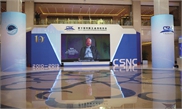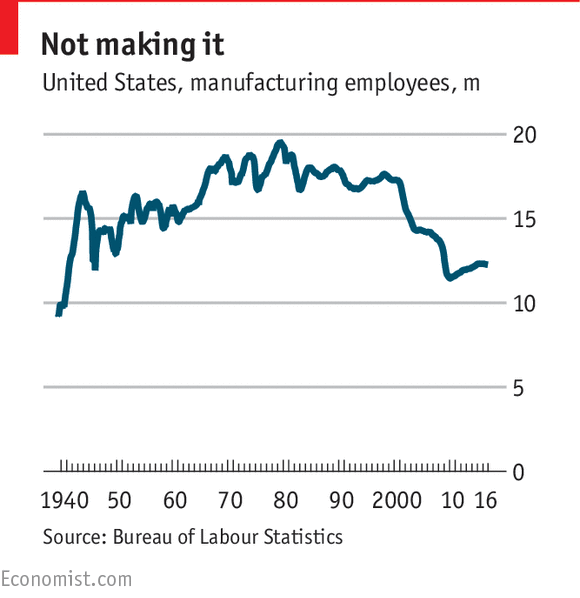Trump Says He's Lost Billions Being President
https://youtu.be/EAO9eO1Nh1E
President Trump: I don't blame China, I blame past leadership
https://youtu.be/Dzvlysi7zOQ
Departure of U.S. companies from China will hurt U.S. economy
https://youtu.be/-ooTKeqwsbo
A Lot of Confusion in China on U.S. Motives, Says AmCham China’s Stratford
https://youtu.be/gysFIV8327w
Escalation of China-U.S. trade tension
https://youtu.be/3pCXrJtm1W4
Markets sink as Trump presses US companies to leave China
https://youtu.be/eutPdwk19Ac
Stocks fall amid fresh tensions in US-China trade war
https://youtu.be/sio9xZtR4gA

Locally, the FBM KLCI stayed in negative territory for the whole of yesterday, before paring losses to close 8.8 points or 0.55% lower at 1,600.53 points. Before the closing, the index hovered below 1,595, falling 1.17% to an intraday low of 1,590.51.
Despite the fall, the local index was among the least affected by the regional selldown, compared with other Asian indices. The biggest loser among the regional indices was Japan’s Nikkei 225, falling 2.17% to 20,261.04. This was followed by Hong Kong’s Hang Seng Index and the Taiwan Stock Exchange, down 1.91% and 1.74% respectively. India’s Sensex notably closed 2.16% higher.
In Southeast Asia, Singapore’s Straits Times Index was the biggest decliner, down 1.45% at 3,065.33, and the Jakarta Composite index closed 0.66% lower at 6,214.51.
Last Friday, US President Donald Trump announced an additional duty on some US$550 billion worth of targeted Chinese goods, following China’s move to hike trade levies on US$75 billion worth of US goods.
Trump said US tariffs on US$250 billion of Chinese imports will increase from 25% to 30% on Oct 1, while an additional 5% tax on US$300 billion worth of Chinese goods — raising the tariff to 15% from 10% — starts on Sept 1.
The president made it clear that the US was responding to China’s threat of additional tariffs on US$75 billion of goods including soybeans, automobiles and oil.
“This looks like a tit-for-tat [response] and I don’t see an easy resolution to the trade war, as there seems to be no middle ground between the US and China. It is very unsettling for the market because there is no direction from day to day,” said Inter-Pacific Securities Sdn Bhd research head Pong Teng Siew.
However, the tensions eased a bit towards the later part of yesterday, as Chinese Vice Premier Liu He said China was willing to resolve the trade dispute through calm negotiations, stating the nation was against the escalation of the conflict.
Trump responded positively to China’s suggestion and, on the sidelines of a summit in France, had hailed Chinese President Xi Jinping as a great leader and welcomed the latter’s desire for calm negotiations.
It remains to be seen how the trade dispute will be resolved, given the constant retaliatory tariffs between the two economic behemoths since early last year.
Several trade talks between the two nations have not brought any solutions to the trade war, still affecting investor sentiments towards global markets. For the KLCI, the trade war remains a major factor affecting analysts’ forecasts.
Kenanga Research said the index’s underlying trend remains bearish but does not discount the possibility of a technical rebound as the KLCI has been in oversold territory for about a month. “Look out for overhead resistance levels at 1,630 and 1,650. If selling pressure continues, the key support levels to keep an eye on are 1,570 and 1,550,” Kenanga Research wrote in a note yesterday. - Source link
Read more:
Clout eroded as US shirks intl duties
I think it's necessary to include something Liu once said that also applies here, “The world needs a new America. It needs an America that is free of prejudice and intolerance. It needs an America that understands respect, that matches words with deeds, that understands the principles of benevolence, righteousness, propriety, wisdom, and faithfulness. The world would be lucky if the new America could become such a country.”Why are the Chinese brushing aside Trump's tweets?
Trump has turned Twitter into a stage for his political show, where he says things to gain votes for reelection. He repeats what he has done for the US – to provide Americans welfare, and to “make America great again.” But he is actually damaging the interests of his own country and people.China unfazed by swaying US policies
In today's world of production patterns, no country can marginalize China anymore. Whichever country forcibly cuts economic ties with China will only harm itself. After Trump tweeted, he received almost one-sided opposition and doubts, which showed how inappropriate was his unrealistic proposal.Former U.S. treasury secretary criticizes policies of Trump administration
https://youtu.be/s9ZeIhimLqM
American expert accuses Western countries of double standard in HK affairs
https://youtu.be/M6YUjfwPVxs
Poking its nose into other countries' affairs is an American obsession
The past few months have been sad and depressing for those who live in Hong Kong. The safety guaranteed on the streets of Beijing and Xi'an should be available to the people of Hong Kong. China should not be asked to compromise its sovereignty. If Americans want to boycott anyone, they should do so with their politicians who support the Hong Kong unrest.West will shed no tears for Hong Kong
Many Hongkongers are confusing right from wrong while Western public opinion constantly delivers the ideological energy that the radical protesters need. The West has shed no tears for Iraq, Syria and Ukraine, which had gone through similar hardships. Now, it is turning Hong Kong into the forefront of the struggle with China, and, as usual, they will shed no tears for the city's misery.Related posts:
New U.S. arms sale to Taiwan and rising trends of 'white supremacy' in the U.S https://youtu.be/yMiBxgtRxnM White House p..
A profile photo of Peter Navarro Photo: IC
○ Navarro used the idea of the seven sins to criticize China, which
showed his narrow and d...
A rioter waves a US national flag in Tsim Sha Tsui district in Hong Kong on August 11. Photo: AFP https://youtu.be/m5xXUsU9oEI The ...
Protesters in protective gear holding up a
symbolic yellow umbrella and an American flag while marching through
the Sha Tin District ...




















 https://youtu.be/OCk4VkAKKFc
https://youtu.be/OCk4VkAKKFc 



 US president-elect Donald Trump gives a speech during election night at the New York Hilton Midtown in New York on Nov 8, 2016. PHOTO: AFP
US president-elect Donald Trump gives a speech during election night at the New York Hilton Midtown in New York on Nov 8, 2016. PHOTO: AFP


